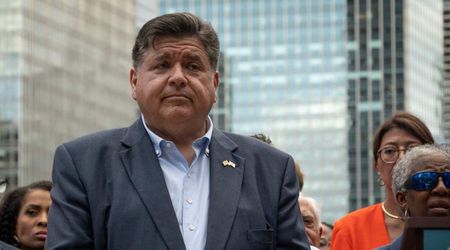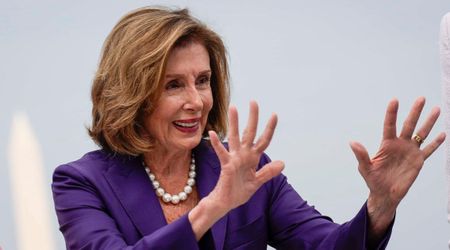6 takeaways from the Super Tuesday victories of Donald Trump and Joe Biden

Key insights from Super Tuesday: Biden and Trump dominate the field

WASHINGTON, DC: In a whirlwind of primaries and caucuses spanning 16 states and American Samoa, the trajectory of the presidential race has definitely become clearer, pointing towards a potential rematch of the 2020 election. However, Super Tuesday also shed light on down-ballot races critical for determining the control of statehouses and Congress come November. President Joe Biden maintains his stride toward securing the Democratic nomination, consistently surpassing his challengers with ease. Conversely, former president Donald Trump remains a formidable force, positioning himself for a showdown in the fall. Despite expectations, former United Nations ambassador Nikki Haley faces an uphill battle, struggling to resonate with Republican voters, even in states where her prospects appeared more promising on paper. Here are some pivotal insights gleaned from the Super Tuesday results.
1. Donald Trump's dominance

At his private club's watch party, Donald Trump exulted in his victories, boasting of their decisiveness. "There's never been anything so conclusive," he said. With scant efforts to reconcile, he pledged GOP unity, dismissing Haley's gains. "We have a great Republican Party with tremendous talent and we want to have unity, and we're going to have unity," he said. "And it's going to happen very quickly." Trump swiftly turned to critiquing Biden over the migrant crisis and deeming the US border and elections akin to a "third world country." Revisiting familiar rhetoric, he labeled COVID-19 as the "Chinese virus." Despite his resounding victories in the states called by 10 pm ET, cracks in the armor were evident. Haley's formidable showing, particularly in battlegrounds like Virginia and Colorado, where she chipped away as much as one-third of the vote.
2. Nikki Haley faces mirror moment

Nikki Haley is finally faced with a pivotal moment that many anticipated. Despite her persistent claims about Donald Trump's electability, GOP voters have consistently rallied behind the former president, propelling his delegate count to even greater heights. Yet, Haley's campaign hasn't been without its merits. Amid the dominance of Trump within the party, she made history as the first woman to win a GOP primary. Despite facing formidable opponents, she held her ground and exposed cracks in Trump's armor. Even now, Haley defiantly points to her favorable standing in general election polls -- hinting at a potential future bid for the presidency in 2028, should the MAGA base ever be swayed. However, the reality remains stark; Haley lacks a viable pathway to securing the nomination in 2024. As speculation swirls, the questions linger -- Will she gracefully exit the race? Will she throw her support behind Trump? Or, perhaps, will she reconsider her pledge against running as a third-party candidate? Only Nikki Haley holds the answers.
3. MAGA influence in North Carolina

The stage is set for what could be the most consequential gubernatorial showdown of 2024 in North Carolina. As one of the key swing states in presidential elections, alongside New Hampshire, the state is poised to elect a new governor this fall. In the wake of the GOP primary, Mark Robinson, endorsed by former president Donald Trump and currently serving as the Lieutenant Governor, emerges as a rather polarizing figure. Democrats, rallying behind Attorney General Josh Stein, have wasted no time in seizing upon Robinson's controversial stances. His denunciation of the LGBTQ community as "filth", his condemnation of public school teachers as "wicked people", and his skepticism about the Holocaust's reality, dismissing it as "hogwash", have sparked widespread condemnation and raised serious concerns.
4. Democrat momentum in Texas

Representative Colin Allred, a former NFL linebacker, emerged as a key Democratic recruit aiming to unseat Senator Ted Cruz. Despite facing questions about a primary challenge from State Senator Roland Gutierrez, Allred secured a decisive victory, setting the stage for a showdown with Cruz in the general election. Texas, despite its deep red roots, presents a battleground where Cruz faces animosity from the left. Allred, drawing inspiration from Beto O’Rourke's fundraising prowess in 2018, sees an opportunity to rally progressive support and mount a serious challenge. “Ted Cruz has had 12 years of pitting us against each other,” Allred said Tuesday. “It’s time we had a senator who will bring us together, I’ll be that senator. We’ve had enough of ‘me’ guys.” In contrast, Cruz focused on Texas values in his victory statement. “This is about Texas, about building bridges, fighting for our cadets, expanding highways, creating jobs, and protecting the state that we cherish so deeply,” Cruz said, before adding, “Never before has it been more important to unify and fight against the radical left who threaten to change what makes this state great.”
5. Concerns for Joe Biden and the Hispanic vote

In California's exit polls, Donald Trump emerged as the preferred candidate among non-White voters, securing 72% of the Hispanic vote compared to Haley's 23%. This is significant given that 36% of respondents identified as "non-White." Trump's gains among non-White voters, particularly Hispanics, were evident in a January Reuters/Ipsos poll where he trailed Joe Biden by only 10 percentage points among Hispanics – 27% to 37%. This shift marks a departure from Biden's 20-point lead among Hispanics in the 2020 election. Recent opinion polls have also shown Trump gaining ground among non-White voters, especially from the working class, with 24% of voters in the California poll lacking a college degree. Despite Haley's appeal to moderates and independents, both groups heavily favored Trump in California. However, Haley managed to win the majority of moderates in North Carolina and Virginia, states that allowed non-Republicans to vote in the Republican primary.
6. Georgia's electoral significance

As Tuesday's results unfolded, the political spotlight swiftly swung back to the duel between Joe Biden and Donald Trump, both of whom head to Georgia this weekend ahead of the March 12 primaries. Biden targets Atlanta, where he aims to tap into support from the Democratic stronghold, while Trump plans a visit to Rome. In the 2020 election, Biden edged out Trump in Georgia by a mere 0.23%, or 11,779 votes. Trump's attempts to challenge the result have led to an indictment for election interference. With Georgia again a critical swing state, Saturday's visits kick off what is expected to be a series of engagements leading up to the November rematch.










